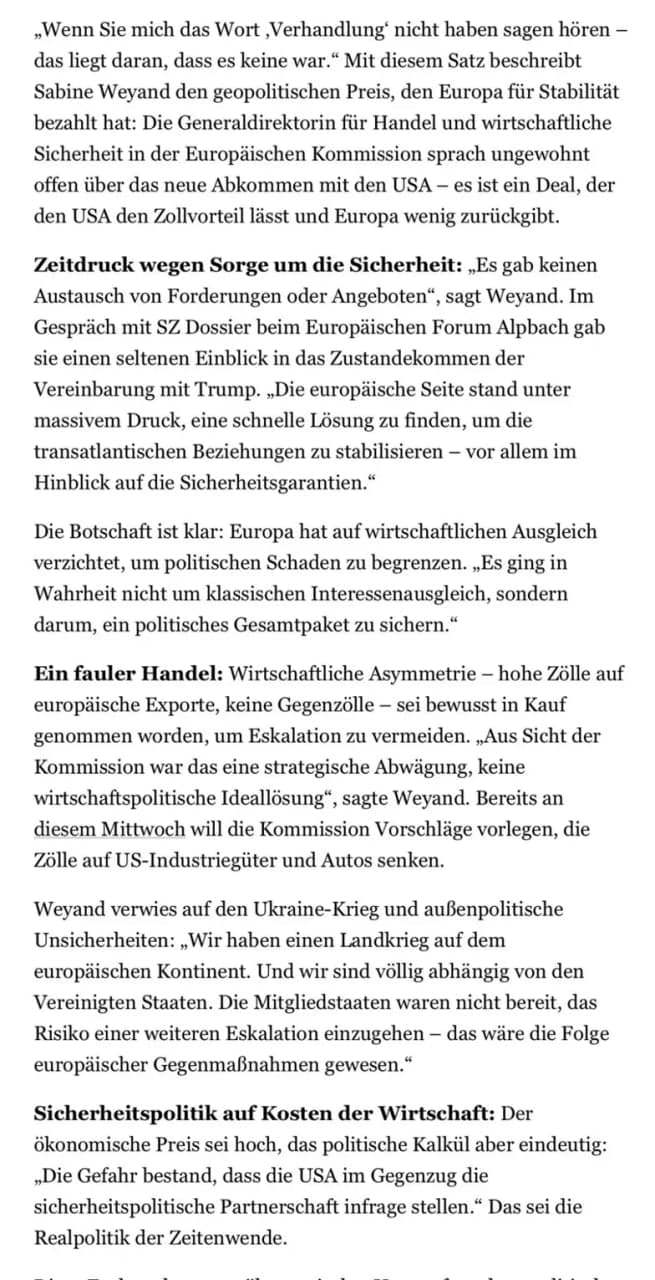EU Trade Chief Sabine Weyand revealed that the recent agreement with the United States was not a product of negotiation but rather a dictated outcome, highlighting the EU"s precarious position amid ongoing geopolitical tensions. Weyand stated, "If you didn"t hear me say the word "negotiation" – that"s because there wasn"t one," emphasizing the lack of agency in the discussions.
The agreement, described as a "strategic compromise" by Weyand, has raised concerns within the EU regarding its economic implications. "This was not an ideal economic solution," she noted, acknowledging the potential negative impact on the EU"s economy. The urgency to stabilize transatlantic relations, particularly in light of security guarantees, was cited as a driving factor behind the EU"s acceptance of the terms.
Weyand pointed to the "land war on the European continent" as a critical context for the EU"s decision-making, revealing a deep dependency on U.S. support. "The member states were not prepared to take the risk of further escalation," she explained, indicating that fear of conflict led to concessions that could worsen European reliance on the U.S.
This disclosure sheds light on the EU"s strategic vulnerabilities and the pressures faced by its leaders. As tensions continue to rise globally, the implications of this coerced compromise may reverberate throughout the European economy and its diplomatic relations with the U.S. For more on related coverage, see our piece on recent developments in the region.


![[Video] Heavy clashes and gunfire reported in Baghdad, Iraq](/_next/image?url=%2Fapi%2Fimage%2Fthumbnails%2Fthumbnail-1768342239932-848qsh-thumbnail.jpg&w=3840&q=75)




![[Video] Gunfire between Iraqi security forces and Sadr militias in Baghdad](/_next/image?url=%2Fapi%2Fimage%2Fthumbnails%2Fthumbnail-1768343508874-4redb-thumbnail.jpg&w=3840&q=75)
